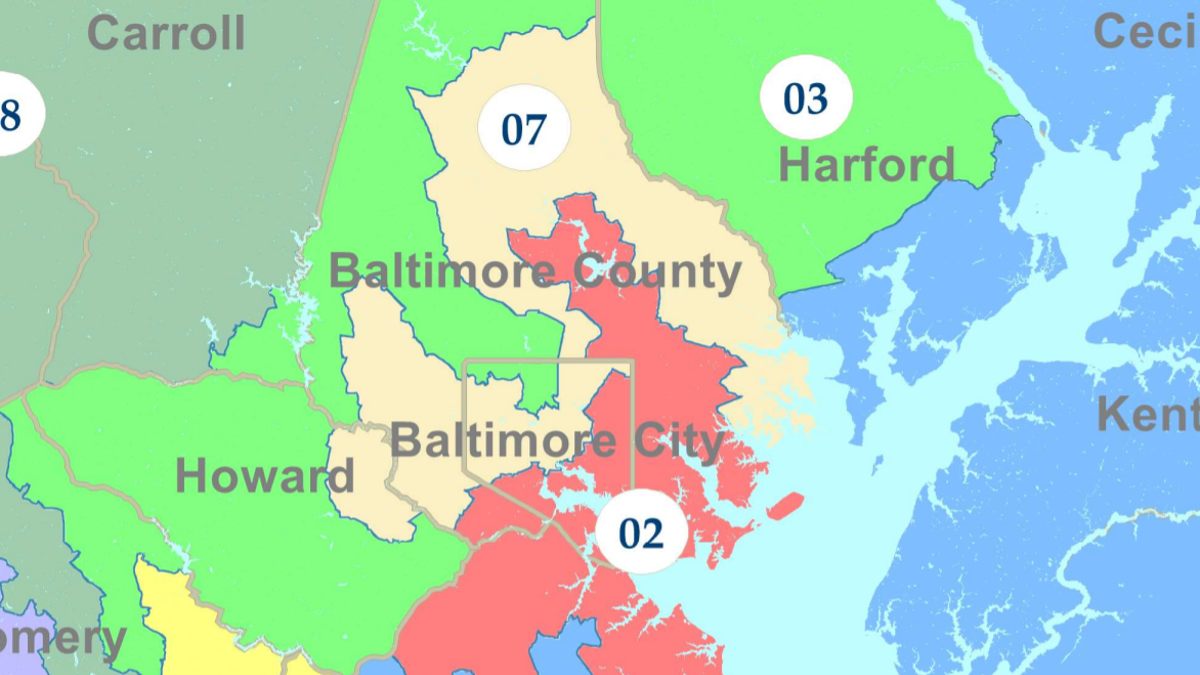Fox News Flash top headlines for December 7
Fox News Flash top headlines are here. Check out what's clicking on Foxnews.com.
Texas on Monday became the first state to be sued by the Department of Justice (DOJ) over its proposed congressional redistricting map, raising questions about whether other heavily gerrymandered states could be next and whether Democrat-controlled states are at risk of being sued too.
"Our complaint today alleges that the redistricting plans approved by the Texas state legislature and signed into law by the Governor will deny Black and Latino voters an equal opportunity to participate in the voting process and to elect representatives of their choice," Associate Attorney General Vanita Gupta said Monday.
The lawsuit follows warnings from Attorney General Merrick Garland earlier this year that the DOJ is open to suing states if it believes their maps are gerrymandered to limit minority representation. But Texas is far from the only heavily gerrymandered state in the union. Republican-controlled Ohio and Pennsylvania, and Democrat-controlled Maryland and Illinois, are among the worst offenders.
Fox News asked the DOJ Monday if it may sue any other states for gerrymandering, including blue states. The department declined to comment.

Associate Attorney General Vanita Gupta is sworn in before a hearing of the Senate Judiciary Committee on Capitol Hill, Tuesday, March 9, 2021, in Washington. (AP Photo/Alex Brandon)
BIDEN JUSTICE DEPARTMENT SUES TEXAS OVER REDISTRICTING MAPS
The DOJ's lawsuit against Texas specifically alleges that the state uses a technique called "cracking" to split urban minority populations into several congressional districts that rope in large suburban and rural White populations. This creates districts that overall lean Republican and limits the opportunity minorities have to elect members that represent their specific interests, the department said.
"The enacted Congressional plan intentionally discriminates against minority voters in DFW by excising rapidly changing communities from DFW-based districts and attaching them instead through a narrow strip to several heavily Anglo counties," the DOJ's lawsuit against Texas says.
It's been Baltimore that's been chopped at and bitten at in 1990 and 2000 and 2010 and here we go now in 2020. So the city can't give anymore… If you've got three people doing that, they're also representing other areas at the same time
"By cracking minority communities and submerging urban minority voters among rural Anglos, the Congressional map effectively turns back a decade of rapid Latino population growth and preserves Anglo control of most remaining districts, particularly District 24," it adds.
This created several "Anglo-controlled districts," in the DFW area, the DOJ said. The DOJ alleges that Texas did the same in the Houston area.
But Texas is not nearly the only state to split up voters in minority-heavy cities for seemingly political purposes. Maryland's and Illinois' maps do essentially the same thing.

An image of the three Baltimore City congressional districts in the Maryland Legislative Redistricting Advisory Committee's final proposed map. (Maryland Legislative Redistricting Advisory Committee)
TEXAS AG FIRES BACK AT BIDEN ADMIN'S ‘ABSURD LAWSUIT’ OVER REDISTRICTING
In the Maryland legislature's final proposed map, Baltimore City is split into three different congressional districts that reach far out into the state's suburbs and rural areas. The 7th Congressional District is shaped like an "S" and cuts through the heart of Baltimore, before reaching into the outlying areas north and south of the city – as far as the rural community Stablersville just 10 miles south of Pennsylvania.
The 3rd Congressional District is shaped like a giant "M." It starts in the rural farming areas along the Mason-Dixon line, dips down into Baltimore city, then juts south to Washington, D.C.’s, northwest suburbs in Glenmont. The 2nd Congressional District includes the southeast part of Baltimore as well as many of its suburbs to the north, east and south.

In this Feb. 4, 2020, file photo, Rep. Kweisi Mfume, D-Md., speaks at a victory party in Baltimore. (AP Photo/Gail Burton, File)
The partisan effect of Maryland's and Texas' splitting of urban communities is different. In Maryland, the Democrat-leaning urban votes are split up in a way that waters down more conservative suburban and rural areas to help Democrats win elections. In Texas, the Democrat-leaning urban votes are split up so suburban and rural areas water down their influence, creating extra opportunities for Republicans to win seats.
But Rep. Kweisi Mfume, D-Md., who represents the 7th District, says Maryland's model still has the effect of hurting the political influence of the majority-Black city.
"We have to find a way to make sure that we're able to make Baltimore City a little more whole than it is," he said in an interview last month on WBAL News Radio.
If the Justice Department is concerned about 'discriminatory redistricting,' then they will immediately bring suit against the Maryland legislature's proposed map.
"I have to tell you it's been Baltimore that's been chopped at and bitten at in 1990 and 2000 and 2010 and here we go now in 2020. So the city can't give anymore. It's got to have some sort of unification where communities have a semblance of having things in common and having the same sort of goals and aspirations," Mfume continued on WBAL. "The counterargument is if you've got three people representing the city that the city is stronger. The argument to that is if you've got three people doing that, they're also representing other areas at the same time."
DEMS' MARYLAND GERRYMANDERING MAPS GET F RATINGS FROM PRINCETON PROJECT
"Maryland has had the unfortunate distinction of having the worst gerrymandered maps in America that have broken up minority communities and suppressed minority representation, and now the legislature is racing to pass a congressional map that makes this even worse," Maryland Gov. Larry Hogan, a Republican, told Fox News. "If the Justice Department is concerned about ‘discriminatory redistricting,’ then they will immediately bring suit against the Maryland legislature’s proposed map."

Gov. Larry Hogan, R-Md., is battling Democrats in his states over congressional redistricting. (Associated Press)
CLICK HERE TO GET THE FOX NEWS APP
Maryland isn't the only Democrat-controlled state that breaks up its city votes into several Democrat-leaning congressional districts that encompass the surrounding rural and suburban areas. Illinois' final 2020 congressional map includes several districts that begin along or very near the Chicago waterfront then meander narrowly into the surrounding rural and suburban areas
The Illinois 1st Congressional District starts on the Chicago waterfront and goes over 60 miles out into the rural Illinois countryside. The Illinois 2nd Congressional District does the same and goes about 150 miles south outside the city along the Indiana border.
"These maps align with the landmark Voting Rights Act and will ensure all communities are equitably represented in our congressional delegation," Illinois Gov. J.B. Pritzker said when he signed the new map into law, according to the Associated Press, despite harsh criticism of the heavily gerrymandered map.





